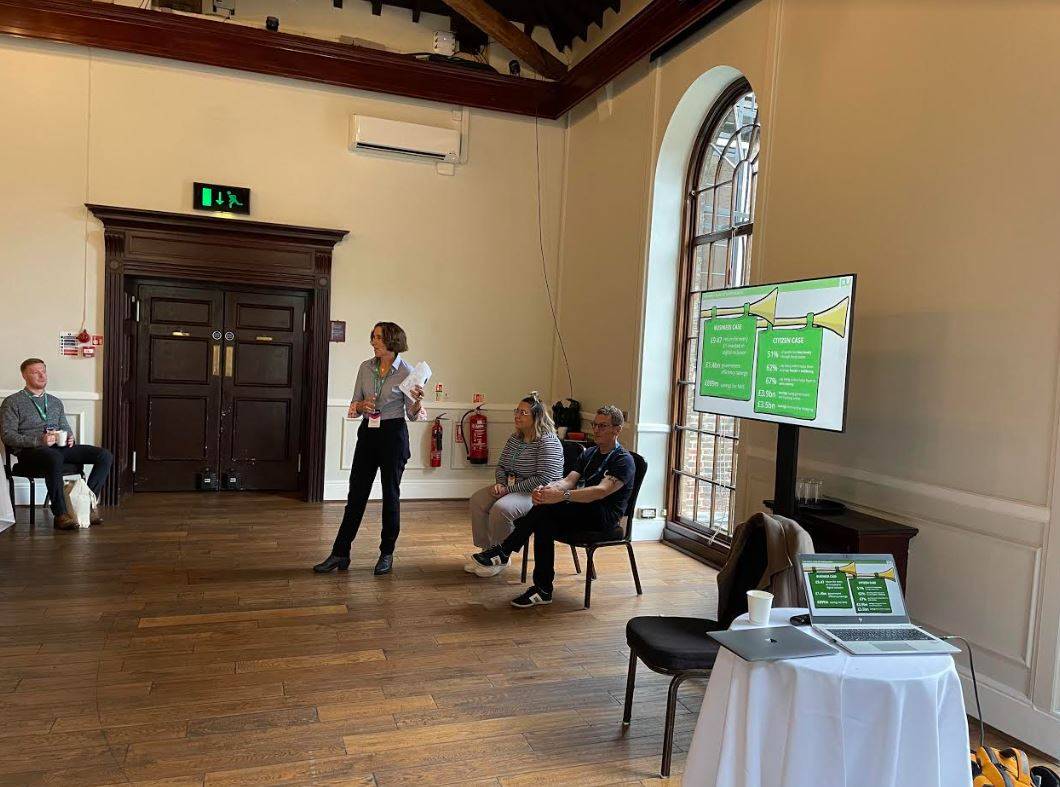How do I make a stand against climate change?
Four years ago, a 15-year-old Swedish girl skipped school and began a climate revolution. She demanded that the Swedish government reduce carbon emissions in accordance with the Paris Agreement. And protested by sitting outside the Riksdag every day for three weeks during school hours with the sign Skolstrejk för klimatet (school strike for climate).
When you think about some of the people who have drawn global attention to the issue of climate change, she is surely towards the top of the list – but we don’t all have to sit on the steps of the Riksdag to make our voices heard. There are other ways we can join the revolution to bring about the changes needed.
Changing behaviour
The biggest change happens from within. Changing our behaviours to become more ethical and climate-conscious and encouraging our friends and family to do the same will spark a quiet revolution of change. Everyone can be an advocate for climate change within their social circles. One of the most valuable contributions we can make is to:
- use our voice to inform and influence others
- bring people together to make a difference in our communities
- maintain the pressure on those in power to take a more sustainable path.
Joining the masses
Climate change protests are becoming more common in several countries around the world. The European Convention on Human Rights (ECHR) gives us the right to protest by protecting our freedom of expression (Article 10) (2) and protecting our freedom of assembly and association (Article 11). However, these rights are “qualified” rights – meaning the government can restrict them in certain circumstances.
If you are tempted to join a climate protest, it’s essential you understand your legal rights beforehand and do everything you can to keep the protest peaceful. The opposite undermines the good cause you are protesting for. In addition, make sure you dress comfortably, take plenty of food and drink with you and have your phone fully charged to ensure you can make a call if you get into difficulty. It’s also a good idea to join a small group so you have people you know and trust alongside you.
Take political action
You don’t have to stand out in the cold for hours chanting to get your voice heard. You could start by sending a letter to your MP. There are several ways to do this. Start by sending an email or letter about your concerns. MPs do take notice of the number of letters they receive about issues. You can also request a meeting or call your MP’s office to get an appointment for an upcoming surgery. You can also complete online petitions, many of which are then forwarded directly to relevant MPs’ offices.
If you do manage to secure a meeting with your MP, do your research first. Understand their background on climate issues and be ready to challenge them if needed. You can ask your MP to start a petition in Parliament to bring about collective action.
In addition, everyone has the right to present an e-petition to the government via their petition website. Your petition will be automatically submitted to the government and if the petition receives more than 10,000 signatures they will respond. If the petition receives more than 100,000 signatures, the government will consider having a debate in Parliament.
Start small, start local
If calling for change at a national level sounds intimidating, there is also a lot you can do locally to make your voice heard. Local Futures is an international non-profit organisation dedicated to renewing ecological and social wellbeing by strengthening communities and local economies worldwide. It calls on individuals to raise awareness on pressure elected representatives to think local. Yet, most importantly, it advocates starting or joining a more systemic localisation initiative aimed at strengthening our local economies and communities.
You could also start your own community group to bring about local change. Speak to neighbours and friends about the climate-related issues on their mind and start a small faction designed to inspire and educate the rest of the local community. Social media can be a huge tool for good when creating local groups, as can hyperlocal networks such as NextDoor. Make sure your community group has a charter or manifestation that everyone agrees to, in addition to a roadmap which explains how you will make a difference in your campaigning.
If this blog article has inspired you to make your voice heard and you want to learn more about what you can do to reverse climate change, take a look at our content collection.
About the author

Dr Denise Taylor is a qualified sustainability consultant who founded a family-run business, Wylde Connections, alongside her daughter in January 2020. The inception of Wylde brought together Denise’s knowledge, skills and experience gained over 30 years across three main disciplines: environmental education, strategic marketing communications, and learning and development. Find Denise on Linkedin.


